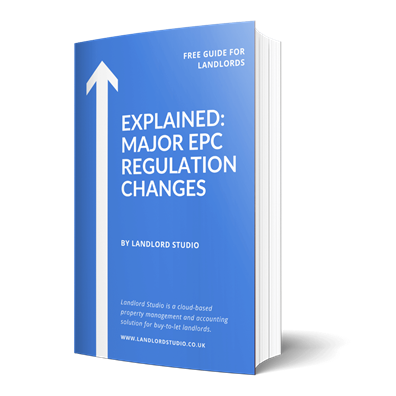




The UK Government has identified that homes across the UK contribute about 1/5 of all carbon emissions from the country. In order for the UK to reach its ambitious carbon neutrality goals, the UK Government has decided to focus on improving the energy efficiency of homes, especially buy to let properties and new builds. As part of this, in several recent consultation documents, it has been suggested that the minimum energy efficiency standard (MEES) of residential buy-to-lets should be raised.
At this time all buy to let properties must have an Energy Performance Certificate (EPC) rating of E or above. Meeting this requirement meant that many landlords needed to undergo costly upgrades to their properties in order to legally advertise and let their properties to tenants.
Under current UK guidelines, landlords need to update the EPC at least once every 10 years. Not having an EPC rating that meets the minimum energy efficiency requirements could result in large fines for landlords.
Find out more in our latest EPC Guidebook
As already mentioned, the current minimum energy efficiency standard for buy to let properties is a band E. This MEES came into full effect last year in 2020. However, in a consultation document from late 2020, it was suggested that the minimum EPC rating be raised to a band C for all new tenancies by 2025, and all existing tenancies by 2028.
According to recent survey statistics, almost 60% of homes in the UK have a D rating or lower which means this change will affect the majority of landlords in the UK potentially costing them £1,000s in forced property upgrades. The UK Government has released suggested changes and potential costs associated with these changes to reach the new minimum EPC standards. Landlords will need to review their insulation in walls, floors, and windows, as well as potentially install new, more energy-efficient boilers.
If this sounded bad enough, in a consultation document from June 2021 it was determined that this bar should be raised again. The document strongly suggests raising the minimum EPC rating for buy to let properties to a B by 2030 with only 4 of the 84 consultants thinking this minimum ‘inappropriate’ or unachievable.
Regulations changes are covered in more depth in our free EPC Guidebook

The first big issue is the cost. Currently, the cost for EPC improvements for landlords is capped at £3,500. However, this cap will likely be raised to £10,000 for the new EPC minimum. And while there are potential funding options that landlords can reach out to, they are few and far between.
What this means is that landlords will need to get a new EPC rating done with suggested changes for improvements. They will then need to implement these changes at personal cost just to legally keep their property as a buy to let. Landlords should keep careful records of all expenses accrued whilst improving their EPC rating using a digital income and expense tracking system like Landlord Studio. Once you hit the cap, you'll be able to register for an exemption so that you don't need to make any further changes at that time and good records will be vital an exemption from further improvements is to be filed.
With the EPC bar being raised again by 2030, it's likely that you'll need to spend even more money. As such landlords need to be planning property improvements in order to spread the cost of these improvements out over the next 10 years.
There are a few exemptions to meeting the new minimum EPC regulations. Examples of exemptions include:
If you believe your buy to let may be exempt you can register it on the PRS exemptions register.
We have outlined a complete breakdown of the current EPC regulations, the upcoming and potential changes mentioned in this document, as well as exemptions, suggested property improvements, and a list of penalties along with references and links to further reading to important documents such as the aforementioned consultation documents and government papers in our downloadable EPC guide.
To learn more about EPC and the upcoming changes, download our free EPC Guidebook here.
Tags:
Comments